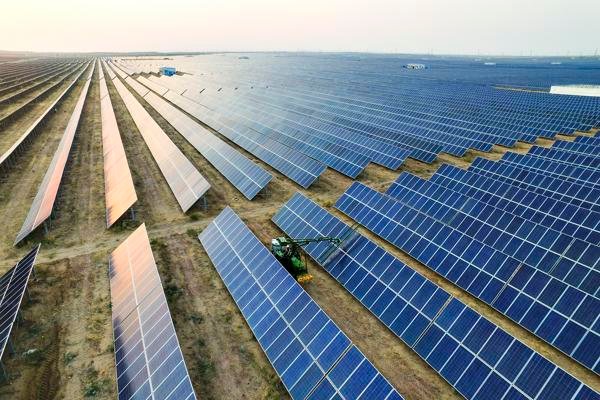NTPC Green Energy Ltd. (NGEL), a subsidiary of the state-run National Thermal Power Corporation (NTPC), has entered into a significant agreement with the government of Maharashtra for the development of green hydrogen and its derivatives. The Memorandum of Understanding (MoU) was signed as part of Maharashtra’s green investment plan for the next five years, with a focus on advancing sustainable energy solutions. This agreement signals a major stride in India’s commitment to fostering a green and sustainable future.
The key aspects of the agreement involve the development of green hydrogen, green ammonia, and green methanol with a capacity of up to 1 million tonnes per annum. Green hydrogen, produced through renewable energy sources, is considered a crucial component in the global transition towards a low-carbon economy. The development of green derivatives such as ammonia and methanol further adds value to the initiative, creating a comprehensive ecosystem for clean energy solutions.
The potential investment associated with this ambitious project is estimated to be approximately ₹80,000 crore. This underscores the significant scale and commitment involved in transitioning to green hydrogen and its allied products. Maharashtra, as a progressive state, is taking proactive steps to align itself with clean energy goals and contribute to India’s broader vision of reducing carbon emissions.
The agreement goes beyond green hydrogen and its derivatives. It also includes the establishment of pumped storage projects with a cumulative capacity of 2 gigawatts (GW). Pumped storage is a form of grid energy storage that plays a crucial role in balancing supply and demand, contributing to the stability and reliability of the electrical grid. Additionally, the agreement outlines plans for the development of renewable energy projects, both with and without storage, with a cumulative capacity of up to 5 GW. This emphasizes the holistic approach towards clean energy, encompassing multiple facets of the renewable energy spectrum.
The signing ceremony featured the participation of NGEL’s Chief Executive Officer, Mohit Bhargava, and the Deputy Energy Secretary of the Government of Maharashtra, Narayan Karad. The collaboration between a leading energy provider like NGEL and a forward-thinking state like Maharashtra reflects a concerted effort to drive sustainable development and create a blueprint for other regions to follow.
NGEL, being a wholly-owned subsidiary of NTPC, has a robust operational capacity exceeding 3.4 GW, with an additional 26 GW in its project pipeline, including 7 GW currently under implementation. This signifies the company’s significant contribution to India’s energy landscape and its strategic focus on expanding clean energy capacity.
NTPC, the parent company, reported a notable 10.2% quarter-on-quarter increase in its net consolidated profit during the third quarter of the fiscal year 2023-24. The company’s commitment to clean energy initiatives aligns with India’s broader goals of achieving a less carbon-intensive and more sustainable economic development model.
The timing of this agreement is noteworthy as India is actively working on enhancing its clean energy portfolio. The upcoming interim budget, set to be presented on February 1, is anticipated to feature revisions in taxes and duties related to battery energy storage systems and components of the green hydrogen supply chain. Such measures are expected to catalyze growth in these sectors and reinforce India’s commitment to a green and sustainable future.
As part of its ambitious targets, NTPC aims to achieve a renewable energy capacity of 60 GW by 2032. This commitment underscores the company’s role as a key player in India’s transition to clean and sustainable energy sources.
In the broader context, initiatives like the NGEL-Maharashtra agreement contribute to India’s efforts to meet its climate goals, reduce dependency on conventional fossil fuels, and create a more resilient and sustainable energy infrastructure. The successful implementation of such projects will set benchmarks for other states and industries to embrace green hydrogen and renewable energy solutions, accelerating the nation’s journey towards a greener and more sustainable future.
